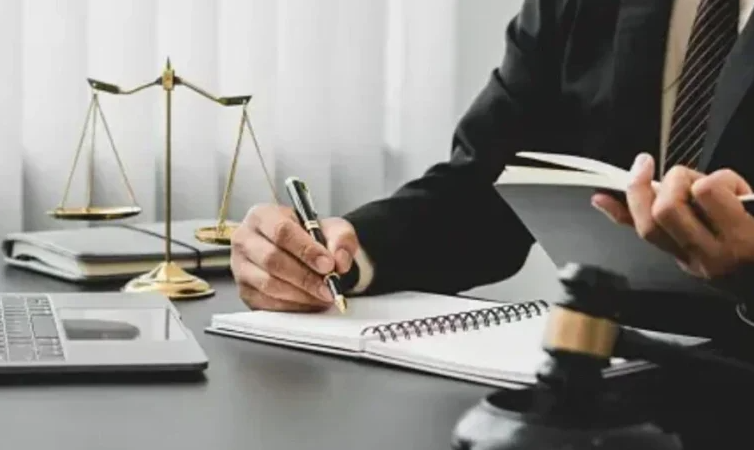
Finding the right lawyer can feel like navigating a complex legal maze. Whether dealing with a personal injury, divorce, or facing criminal charges, having the proper legal representation can make all the difference. This guide will help you understand what to look for and how to choose the best lawyer for your needs.
Understanding Your Legal Needs
The first step in finding the right lawyer is understanding your legal needs. Different lawyers specialise in other areas of law, so identifying your legal issue is crucial.
Types of Lawyers
- Personal Injury Lawyers: Specialize in cases where someone has been injured due to another’s negligence.
- Family Lawyers: Handle divorce, child custody, and adoption matters.
- Criminal Defense Lawyers: Represent clients accused of crimes.
- Corporate Lawyers: Assist businesses with legal issues, including mergers, acquisitions, and compliance.
- Estate Planning Lawyers: Help clients plan for the future, including wills and trusts.
Understanding the type of lawyer you need will narrow your search and ensure you find someone with the right expertise.
Researching Potential Lawyers
Once you know what type of lawyer you need, research potential candidates. This involves examining their experience, reputation, and suitability for your specific situation.
Experience and Specialization
Experience matters. Look for lawyers who have a proven track record in the area of law relevant to your case. For example, if you’re dealing with a personal injury case, you’ll want a lawyer who has successfully handled similar cases.
Reputation and Reviews
Check online reviews and ask for referrals from friends, family, or colleagues who have had similar legal issues. Positive feedback from previous clients can be a good indicator of a lawyer’s competence and professionalism.
Initial Consultation
Most lawyers offer an initial consultation, often for free or at a reduced cost. Use this opportunity to ask questions about the lawyer’s experience, approach to your case, and fee structure. This will also give you a sense of the lawyer’s communication style and whether you feel comfortable working with them.
Evaluating Your Options
After your initial research and consultations, you must evaluate your options and decide. This involves considering several factors to ensure you choose the best lawyer.
Communication and Availability
Effective communication is critical to a successful lawyer-client relationship. Ensure your chosen lawyer will keep you informed about your case and promptly respond to your questions. Ask about their preferred method of communication and how often you can expect updates.
Cost and Fee Structure
Legal fees vary widely, so it’s essential to understand how a lawyer charges for their services. Some common fee structures include:
- Hourly Rate: The lawyer charges a set amount for each hour worked on your case.
- Flat Fee: A single, fixed fee for handling your case from start to finish.
- Contingency Fee: The lawyer only gets paid if you win your case, typically taking a percentage of the settlement or award.
Ensure you are transparent about all potential costs and expenses arising during your case.
Compatibility and Trust
It would help if you felt comfortable and confident in your lawyer’s abilities. Trust your instincts when choosing someone you believe will represent your best interests. Building a good rapport and feeling that your lawyer truly understands and cares about your case can make a significant difference.
Making Your Decision
After evaluating all these factors, you should be ready to make an informed decision. Remember, choosing the right lawyer is crucial in ensuring a positive outcome for your legal matter.
Signing a Contract
Once you’ve chosen, you’ll typically sign a retainer agreement. This contract outlines the scope of work, fee structure, and other essential details about your lawyer-client relationship. Make sure you read and understand this agreement before signing.
Staying Involved
Even after you’ve hired a lawyer, your involvement in your case is essential. Stay informed, ask questions, and ensure you are kept up-to-date on any developments. A proactive approach can help your lawyer work more effectively on your behalf.
Special Considerations
In some situations, you may have unique considerations when choosing a lawyer. For instance, if you’re dealing with a legal issue in a specific location, such as Sydney, you might come across firms like Jameson Law Sydney. Researching local firms and their specialties can provide additional insights and options tailored to your legal needs.
Local Expertise
Choosing a lawyer with local expertise can be particularly beneficial if your case involves regional laws or regulations. Local lawyers are more likely to be familiar with the local court system, judges, and other legal professionals, which can be an advantage in your case.
Conclusion
Navigating the legal waters can be challenging, but finding the right lawyer can make a significant difference. By understanding your legal needs, researching potential lawyers, and carefully evaluating your options, you can find a lawyer who will provide the expertise, support, and representation you need. Remember, the right lawyer is a legal expert and a partner who will stand by you and advocate for your best interests. Take your time, trust your instincts, and choose a lawyer to help you achieve the best possible outcome for your case.
